Spinning Triangles:
Ignition of a school of design.
Kinshasa
On the occassion of the 100th anniversary of the Bauhaus, SAVVY Contemporary seeks to challenge and act against the inherent, neocolonial power structures in design practices, theory and teaching with its project SPINNING TRIANGLES. It takes up the founding moment of the Bauhaus one hundred years ago and starts from its reality as a school of design to reverse and reshape it.
symposium 06.04.–09.04.2019
workshops 27.03.–29.03.2019 & 10.04.–14.04.2019
With Sinzo Aanza, Christian Benimana, Banka (Jonathan Bongi, Jean Kemba, Elie Mbansing, Malaya Rita, Jean-Jacques Tankwey), Cosmin Costinas, Cheick Diallo, Eddy Ekete, Iviart Izamba, Henri Kalama, Koyo Kouoh, Van Bo Le-Mentzel, Lisanga Bankoko (Lema Diandandila, Mavita Kilola, Mbo Mbula, Lutadila Lukombo), Saki Mafundikwa, Malaysia Design Archive, Lambert Mousseka, Oracle Ngoy, Cedrick Nzolo, Colette Poupie Onoya, Eliana Otta, Tabita Rezaire, Simon Soon, Tau Tavengwa, Ema Tavola, Nada Tshibuabua, Ola Uduku, Jean Paul Sebuhayi Uwase, Dana Whabira, and many others
Symposium schedule
| 06.04.2019 Académie des Beaux-Arts | |
15:00 | Welcome & Introduction |
15:30 | Talk Saki Mafundikwa Freeing “Design” from its Western Shackles |
16:30 | Talk Eliana Otta On Hechizos and Humble Offerings (Reenchanting Objects for Disenchanting Worlds) |
17:20 | Talk Sinzo Aanza: Counter Life: A Brief Look Upon the Power of the Image and the Construction of Images of Power in Kinshasa / Vie de Comptoir: Une Brève Considération sur le Pouvoir de l'image et la construction des images du pouvoir-faire à Kinshasa |
| 14:00–19:00 | Film Screening BANKA Collective (Jonathan Bongi, Jean Kamba, Rita Mayala, Elie Mbansing, Jean-Jacques Tankwey) |
21:00 | Opening Party at Ndaku Ya La Vie Est Belle – in cooperation with Timbela Na Timbela Yo |
| 07.04.2019 Académie des Beaux-Arts | |
15:00 | Introduction |
15:15 | Talk Ema Tavola Tattoos, Colonialism, Body Politics |
16:00 | Talk Cosmin Costinas |
| 16:40 | Break |
17:00 | Talk Cheick Diallo The Street as Laboratory of the Possible / La Rue Comme Laboratoire du Possible |
17:50 | Performance Tabita Rezaire Lubricate Coil Engine – Decolonial Supplication |
| 14:00–19:00 | Film Screening BANKA Collective (Jonathan Bongi, Jean Kamba, Rita Mayala, Elie Mbansing, Jean-Jacques Tankwey) |
| 08.04.2019 KinArt Studio | |
15:00 | Introduction |
15:15 | Talk Ola Uduku Real Creative Collaboration in the Kinshasa “Un-School” |
| 16:00 | Roundtable discussion Henri Kalama, Cedrick Nzolo, Eddy Ekete, Orakle Ngoy: Educative polyphony and spaces for knowledges / Polyphonie éducative et espaces des savoirs(-faires) |
17:00 | Talk Koyo Kouoh RAW Académie: A question of necessity / RAW Académie : Une question de nécessité |
| 17:55 | Break |
| 18:15 | Talk Banka (Jean-Jacques Tankwey; Jean Kamba; Rita; Elie Mbansing; Jonathan Bongi) Kinshasa mboka banka / Kinshasa, land of the alerted / Kinshasa, la terre des avertis |
| 19:30 | Collective Dialogue Lisanga Bankoko (Vuvu Babingi, Lema Diandandila, Mavita Kilola, Lutadila Lukombo, Mbo Mbula, Muamba Mulamb, Nzundu Ndombasi) “A cultural revolution” through “la SAPE”, and ancestral works |
| 14:00–19:00 | Film Screening BANKA Collective (Jonathan Bongi, Jean Kamba, Rita Mayala, Elie Mbansing, Jean-Jacques Tankwey) |
| 09.04.2019 KinArt Studio | |
15:00 | Introduction |
| 15:15 | Talk Dana Whabira Reconfigurations. Ruminations on Healing, Memory and Space |
| 16:00 | Talk Simon Soon Odd Houses: Esther Yuen and Julius Posener in Kuala Lumpur |
| 17:00 | Talk Christian Benimana The African Design Centre |
| 17:45 | Break |
18:05 | Performance Orakle Ngoy My Version / Ma Version |
| 18:55 | Roundtable discussion Iviart Izamba, Colette Poupie Onoya, Jose Bamenikio, Grace Mujinga Mingling Bodies, Spatial Clashes or Clashing Bodies, Mingling Spaces? |
19:55 | Talk Tau Tavenga What Design Can do for the City? Some Provocations |
| 20:45 | Performance Espace Masolo |
| 14:00–19:00 | Film Screening BANKA Collective (Jonathan Bongi, Jean Kamba, Rita Mayala, Elie Mbansing, Jean-Jacques Tankwey) |
WorkshopS
27.03.–29.03.2019 10:00–17:00
Segregated Cities, Networked Cities. Five Things to Unlearn From Modernist Architecture
With Van Bo Le-Mentzel
At Académie des Beaux-Arts, Kinshasa
08.04.2019–09.04.2019 9:00–12:00
Hechizos and Humble Offering from Le Grand Marché
With Eliana Otta and Nada Tshibuabua
At Timbela Batimbela Yo, Grand Marché, Kinshasa
10.04.2019 15:00–19:00 11.04.–14.04.2019 10:00–19:00
Design for Impact
With Jean Paul Sebuhayi Uwase, Jean Kamba and Jonathan Bongi
At Salle Terminus, 4044 av. du Partie, Bon-Marché, Kinshasa
10.04.2019 15:00–19:00 11.04.–14.04.2019 10:00–19:00
Spirits and Matter-Bodies
with Lambert Mousseka and Elie Mbasing
At Espace Massolo, 47 av. Ndolo, Ndjili, Kinshasa
10.04.2019 15:00–19:00 11.04.–14.04.2019 10:00–19:00
The Street as Laboratory of the Possible
with Cheik Diallo and Jean-Jacques Tankwey
At Ndaku Ya la Vie est Belle, 13 av. Digba, Matonge, Kinshasa
First and foremost, the Bauhaus was a school of design. It aimed to educate a new generation of designers, makers and thinkers that would face the challenges of their “now”. SPINNING TRIANGLES takes up this founding moment of 1919. Not in order to repeat it but to twist it: we will create a school of design that has what it takes to tackle the challenges of our “now”, and might, precisely by this, turn into an “Un-school”. This school will not be developed by the geopolitical west, but through the accelerated movement between three deeply interwoven places – Germany, D.R. Congo, China – and will confuse their prescribed roles as idea provider, raw material supplier and champion of production.
The first spinning of this longterm project will have taken place in Germany (Dessau and Berlin), and will accelerate into its second spinning in Kinshasa, the capital of a country without which our smartphone-modernity, creative economy and data collecting mania is unthinkable but which also bears the highest costs: the past twenty years alone have amassed six million corpses caused by the ruthless mining of minerals and its associated conflicts – official numbers that can be deemed as cautious estimations.
Here, an exchange platform for knowledge transfer between several actors from the “Global South” is initiated. During a symposium, participants debate status quos, question solutions, talk about successes, failures, ideas, possi-bilities and impossibilities, while moving between presentations, walks, discussions, music and performances. Several workshops initiate further dialogues, where social and political climates, conditions of “now,” the practice of design and pedagogical formats are not only thought about but also tentatively redone through practice. Discussion rounds are initiated where a viable concept for a school of design is discussed and questioned. The speculative frame of this project creates a space in which some assumptions are clear: it is not meant to be temporal, but to last and be lived. It is meant to be created for the context in which it emerges (Kinshasa) but considers its furthering in other geographies, leading to the third spinning – when a tentative actualization of the school will take place in Berlin, and to be more precise, at SAVVY Contemporary.
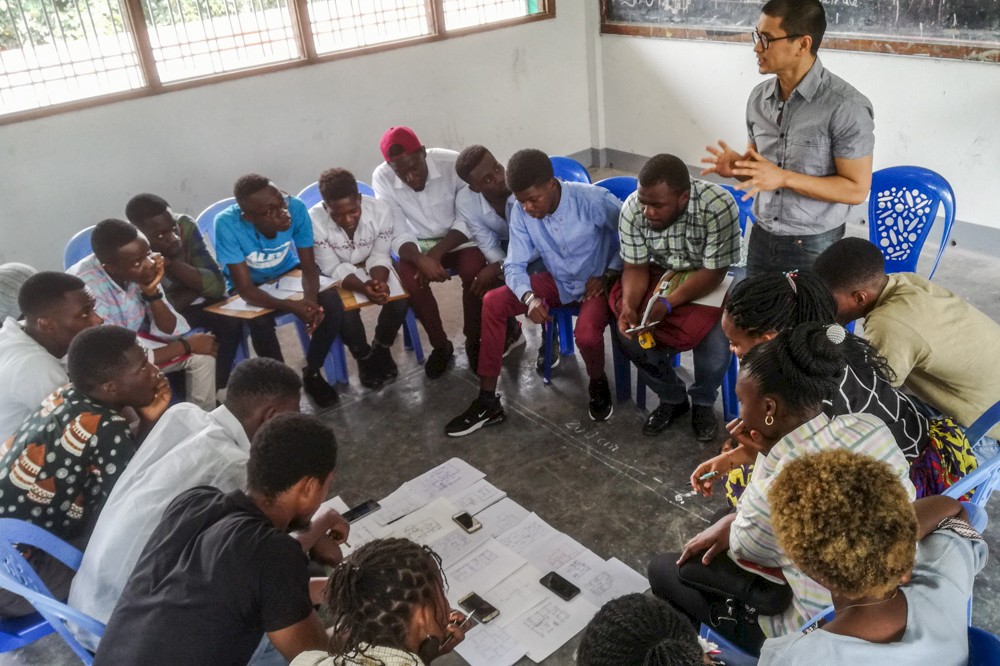
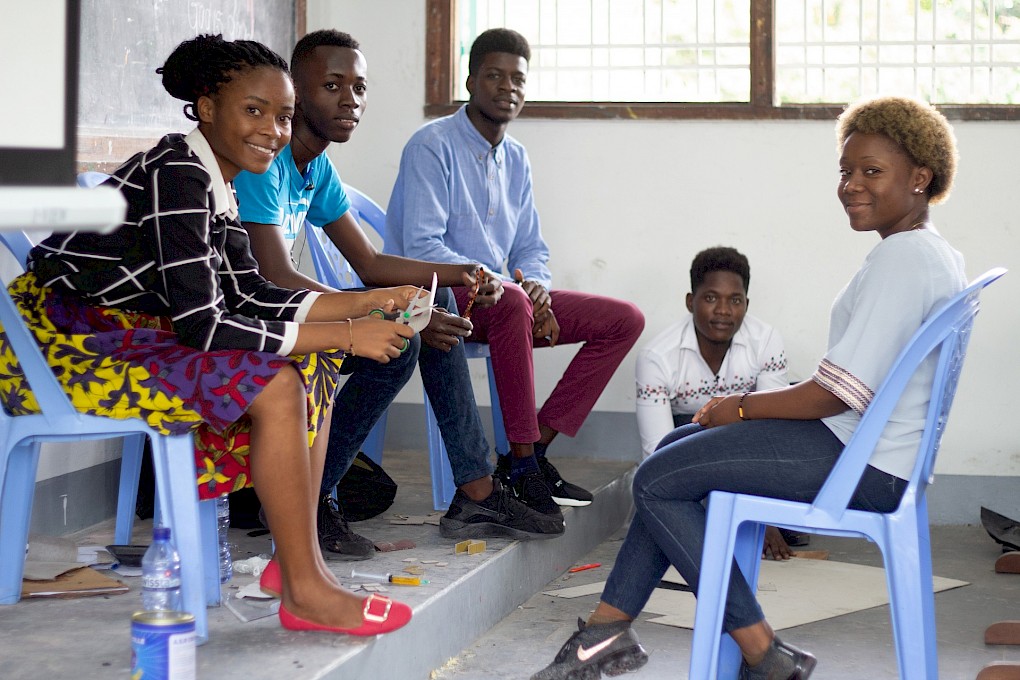
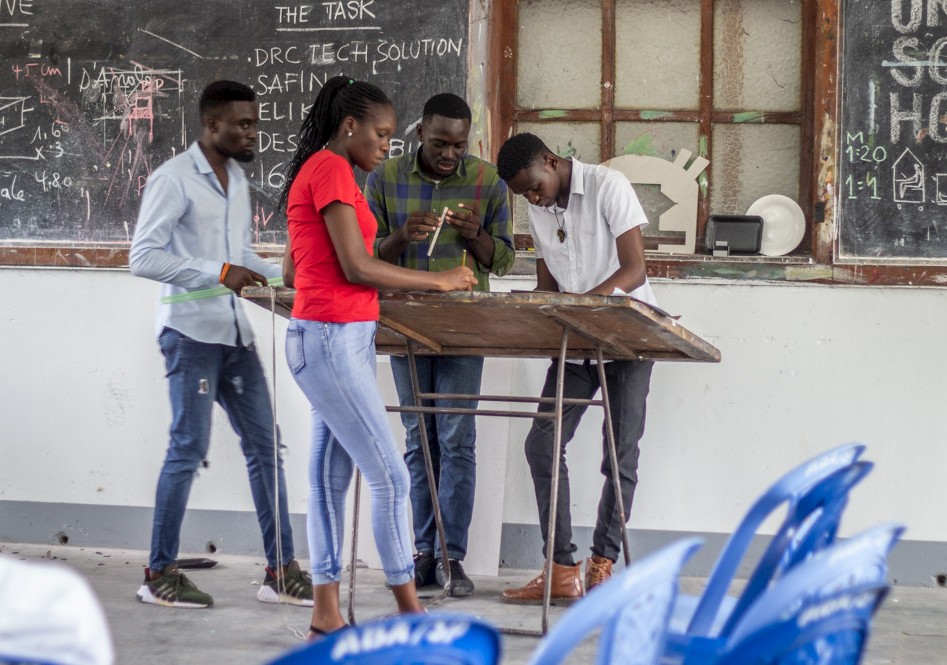
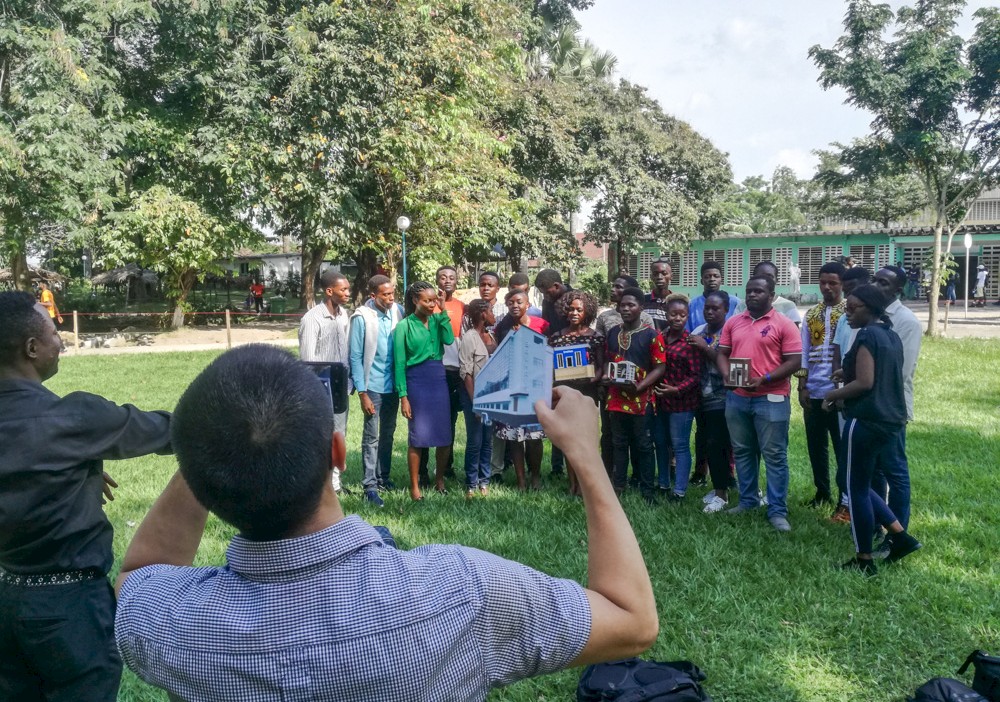
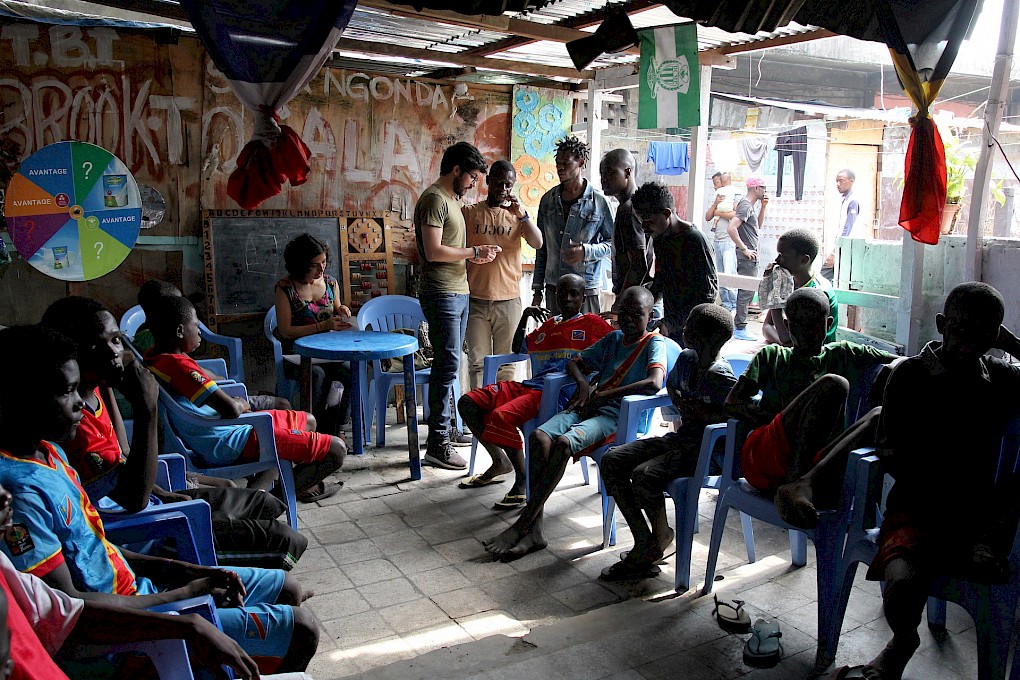
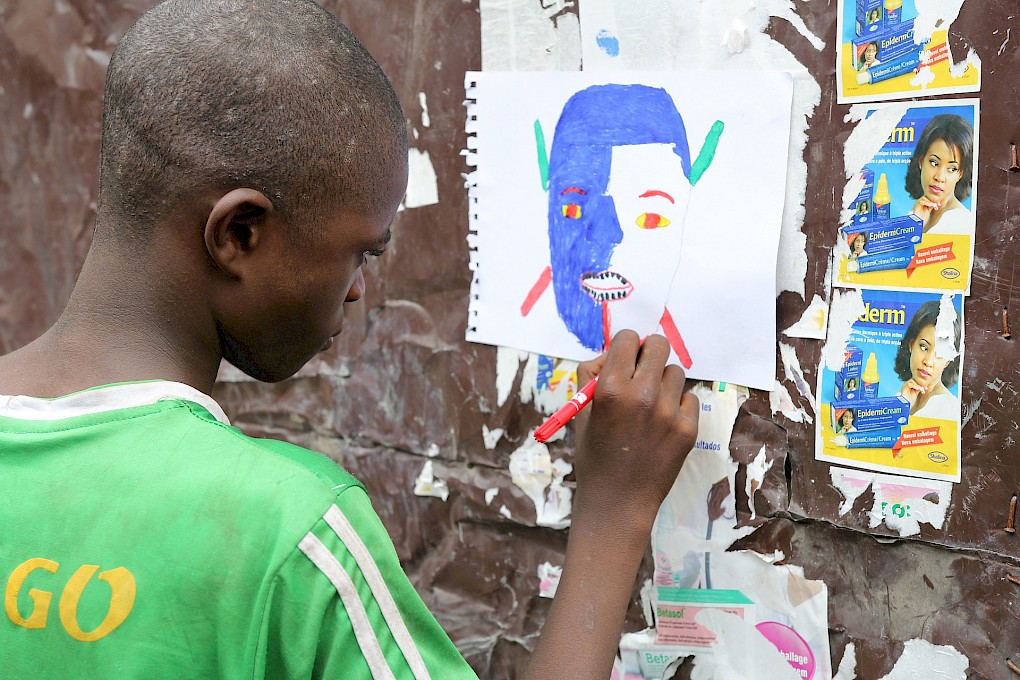
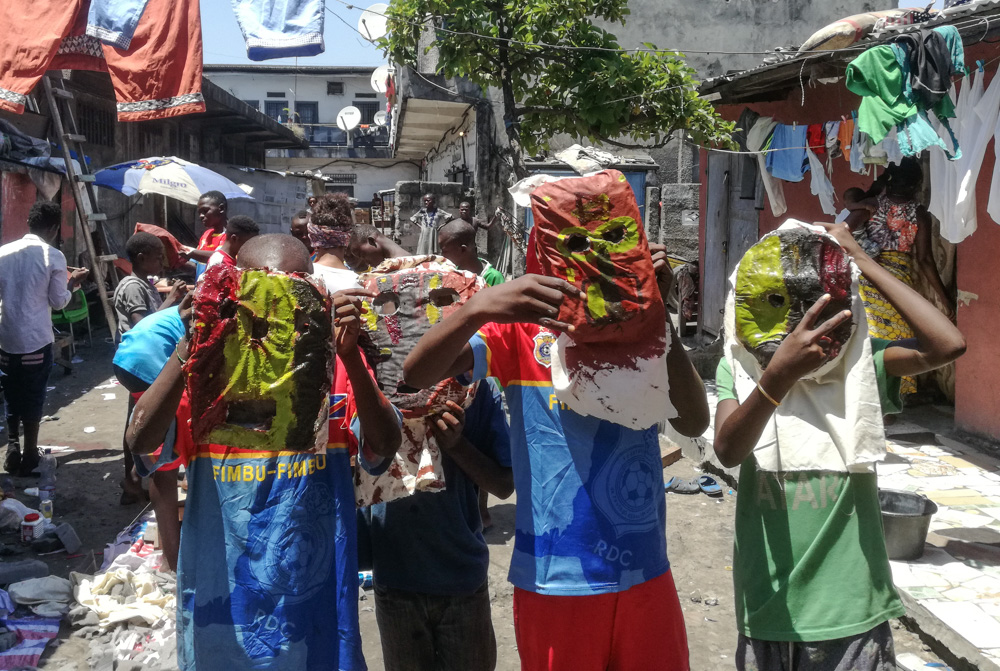
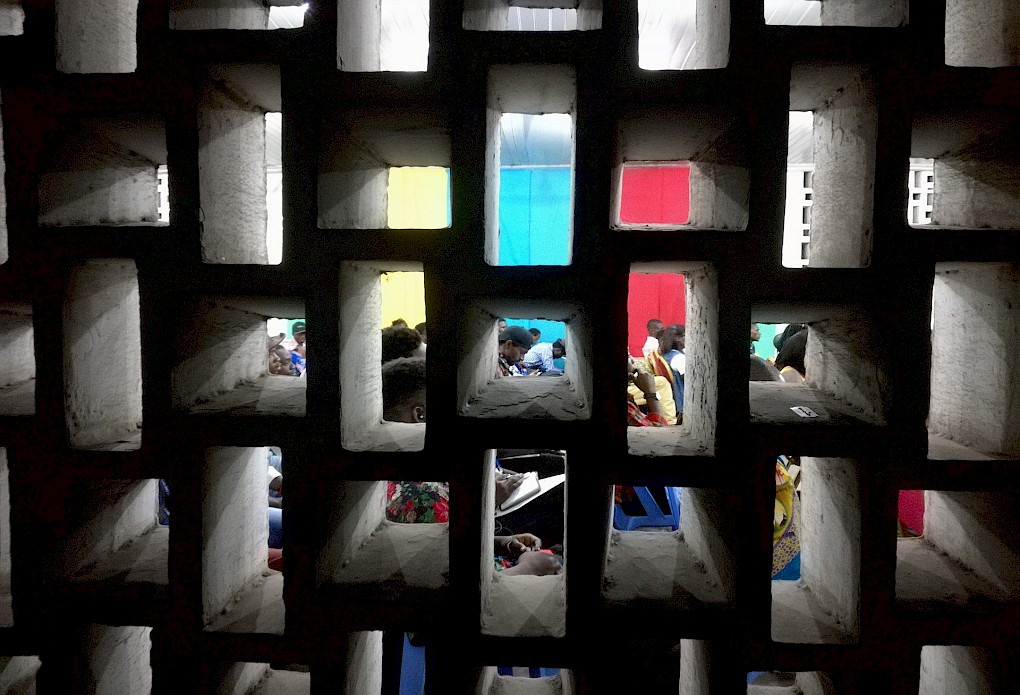

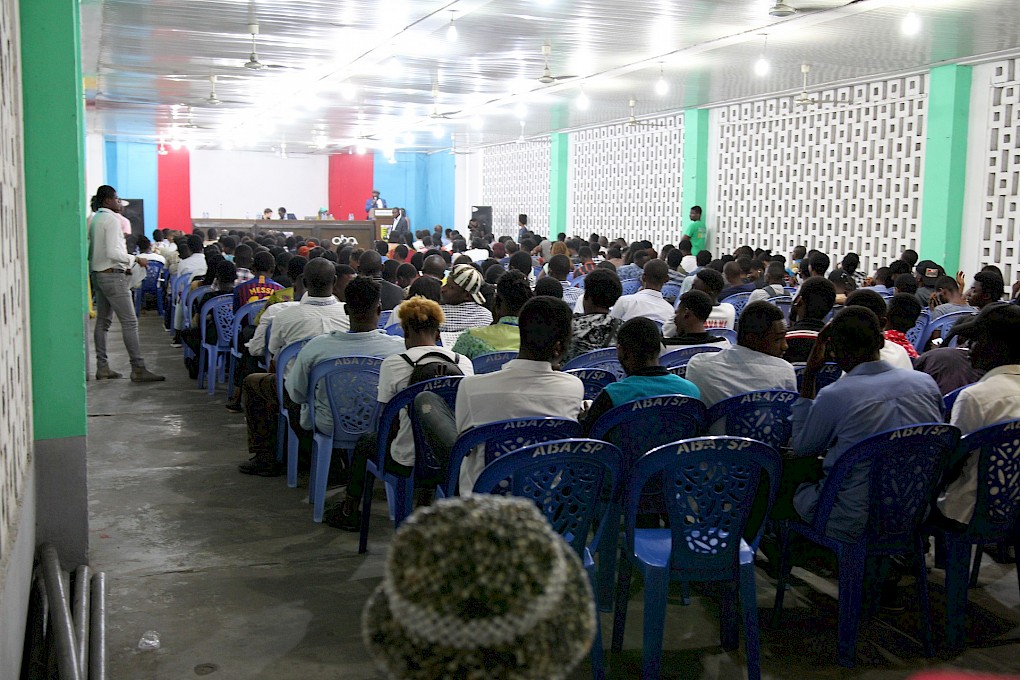
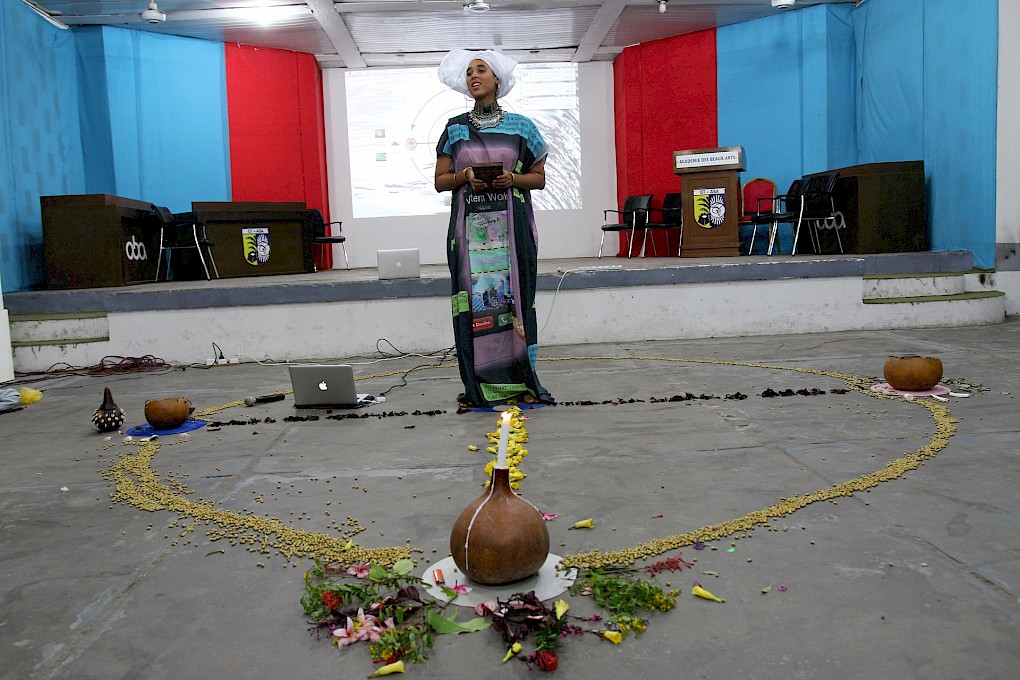
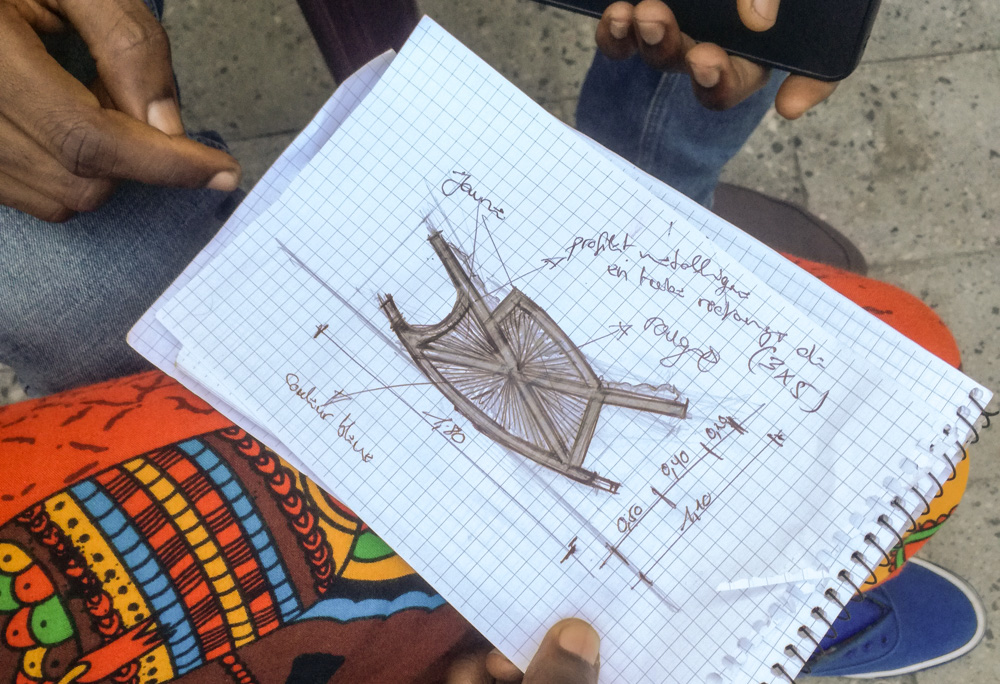
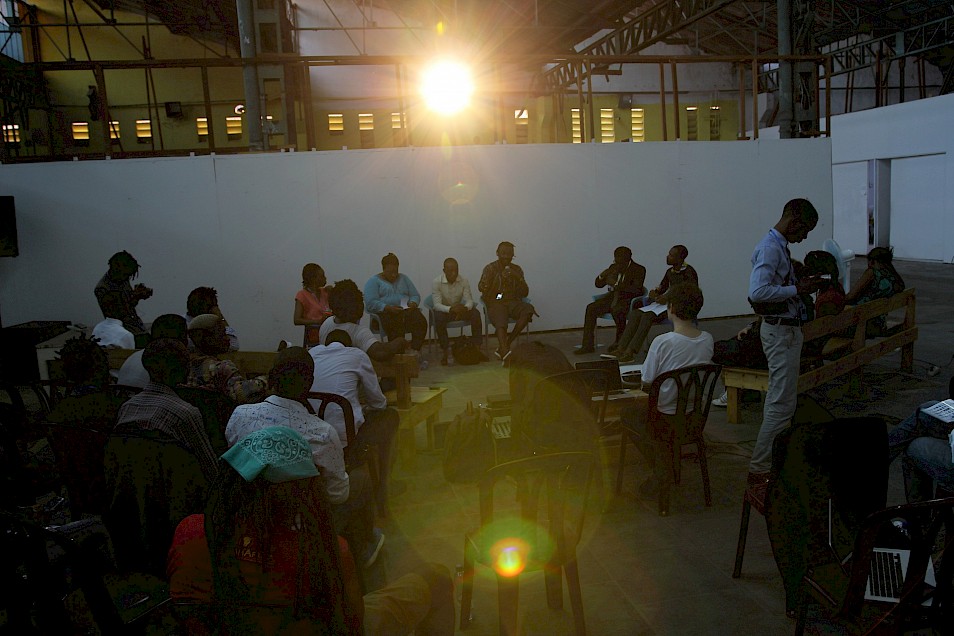
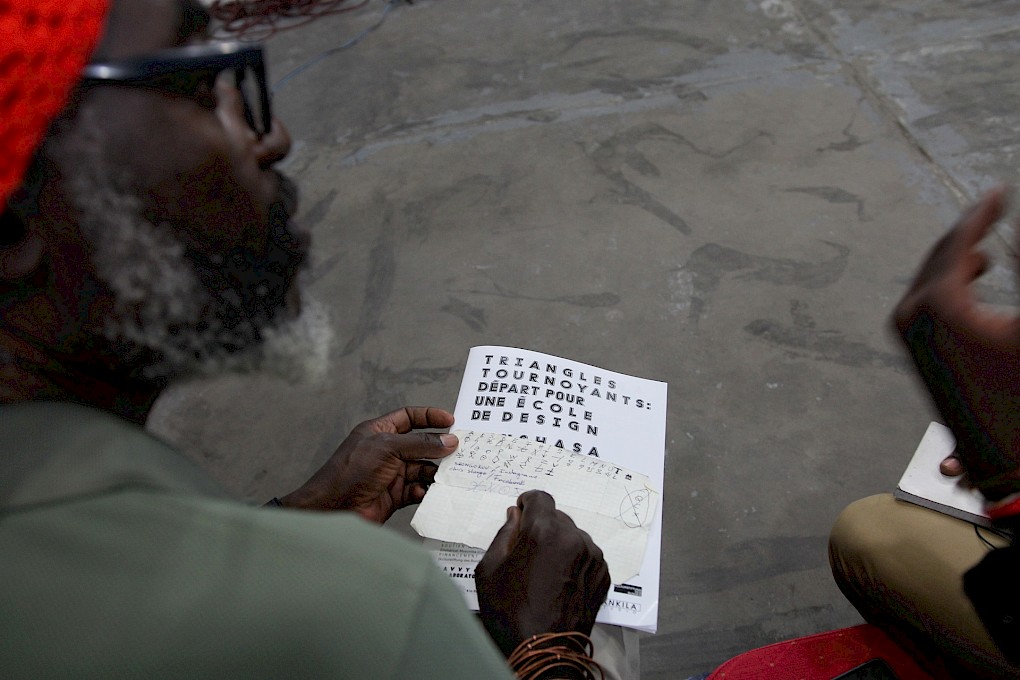
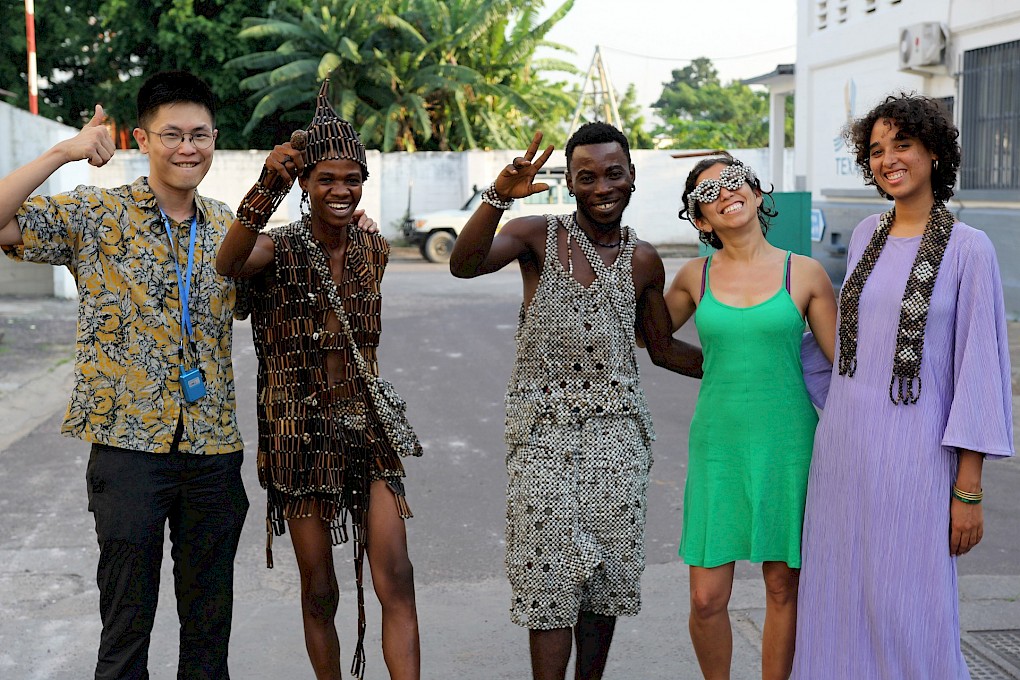
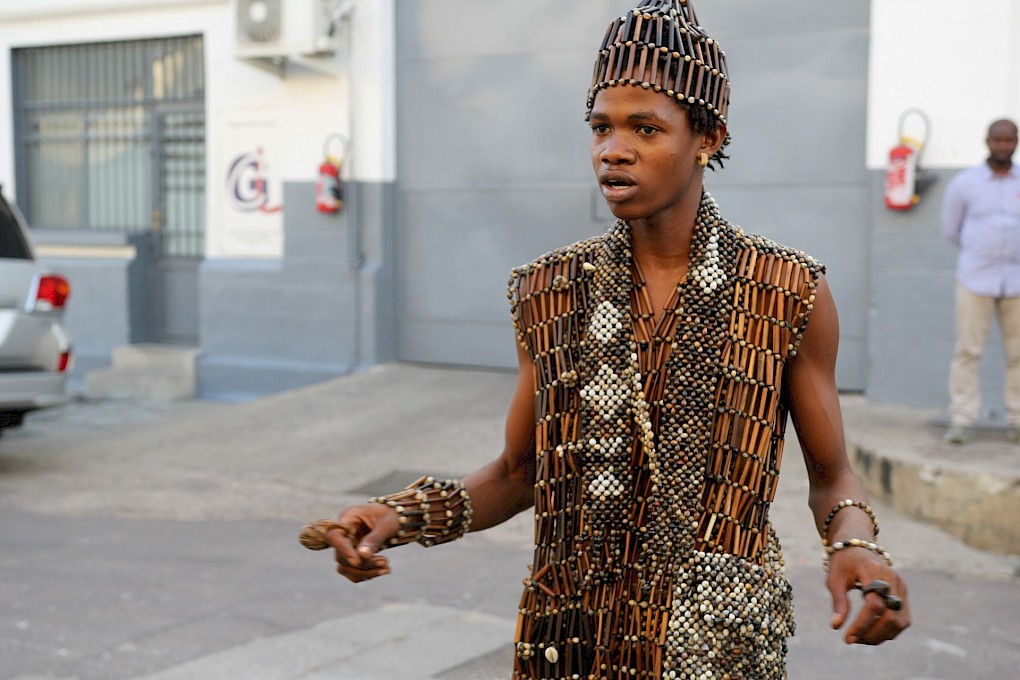
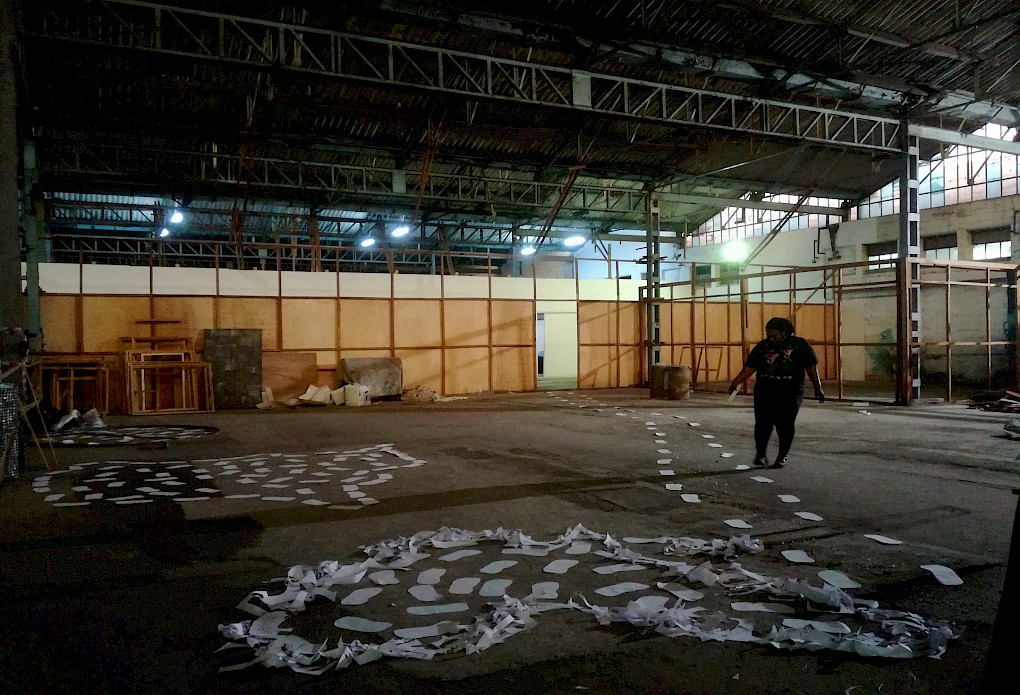
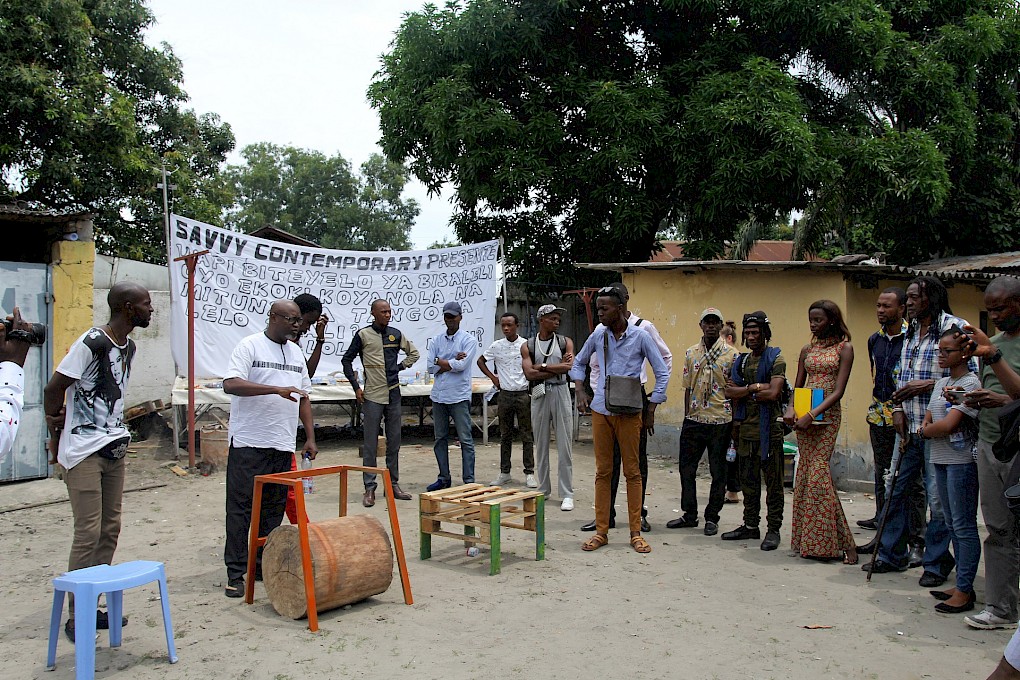
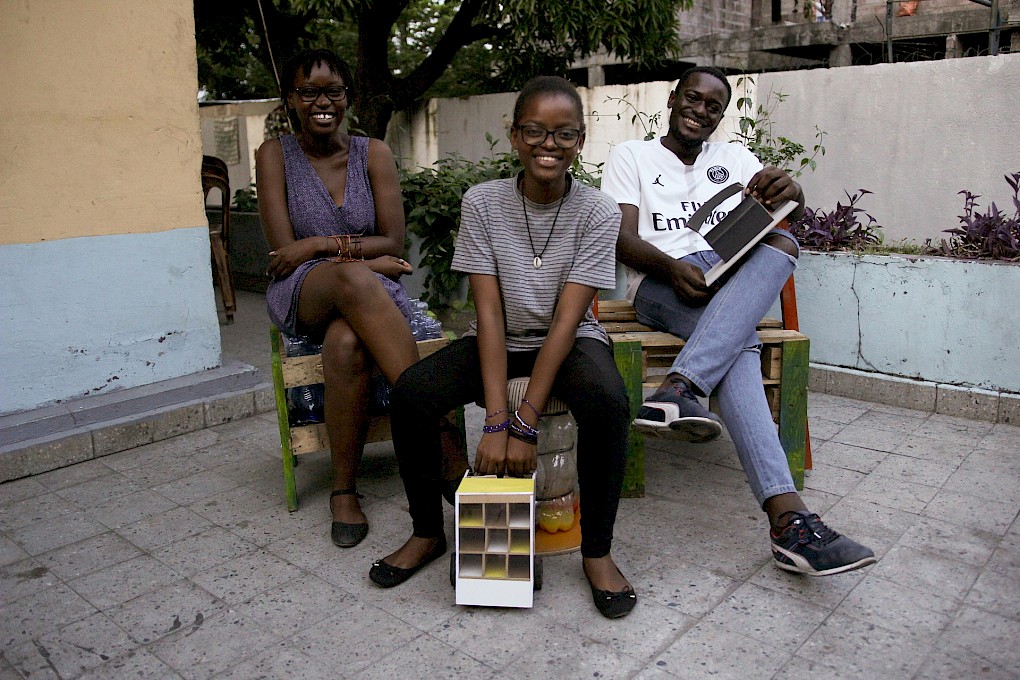
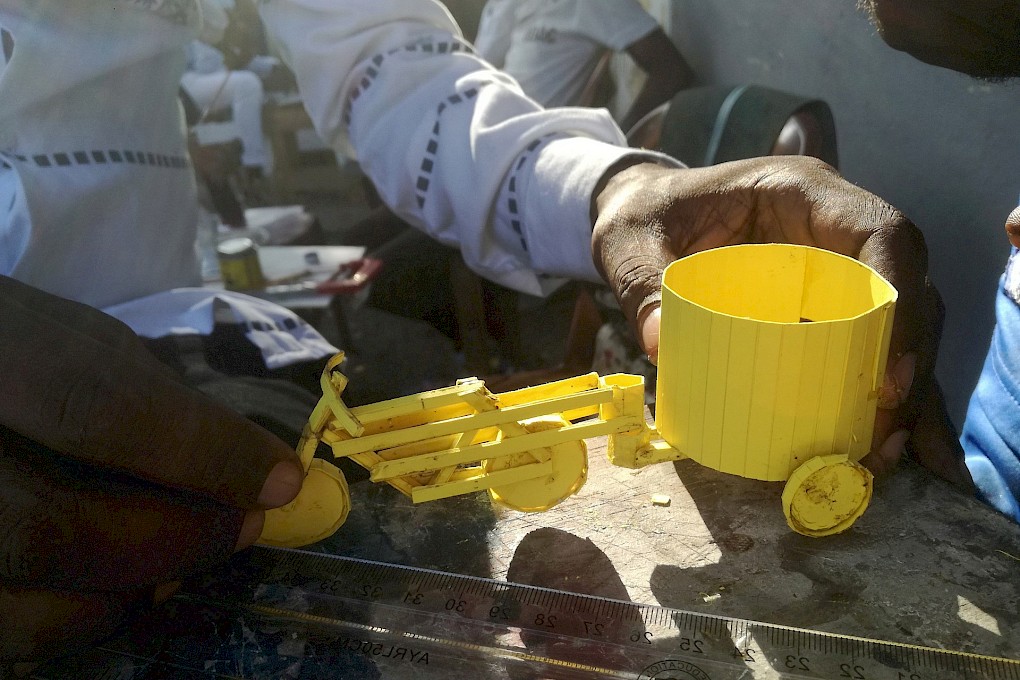
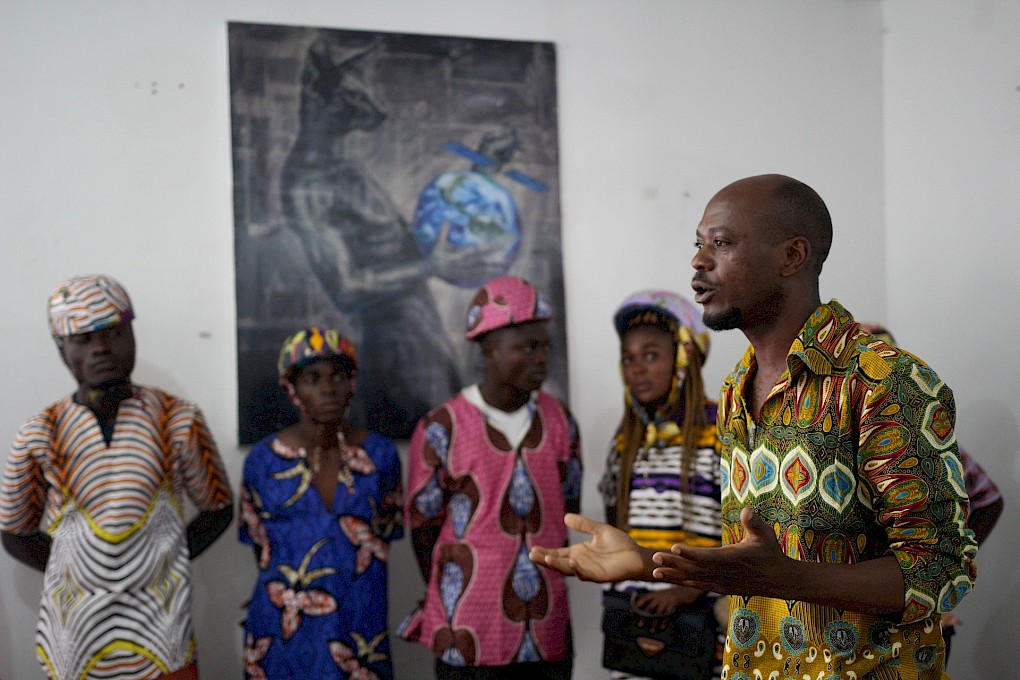
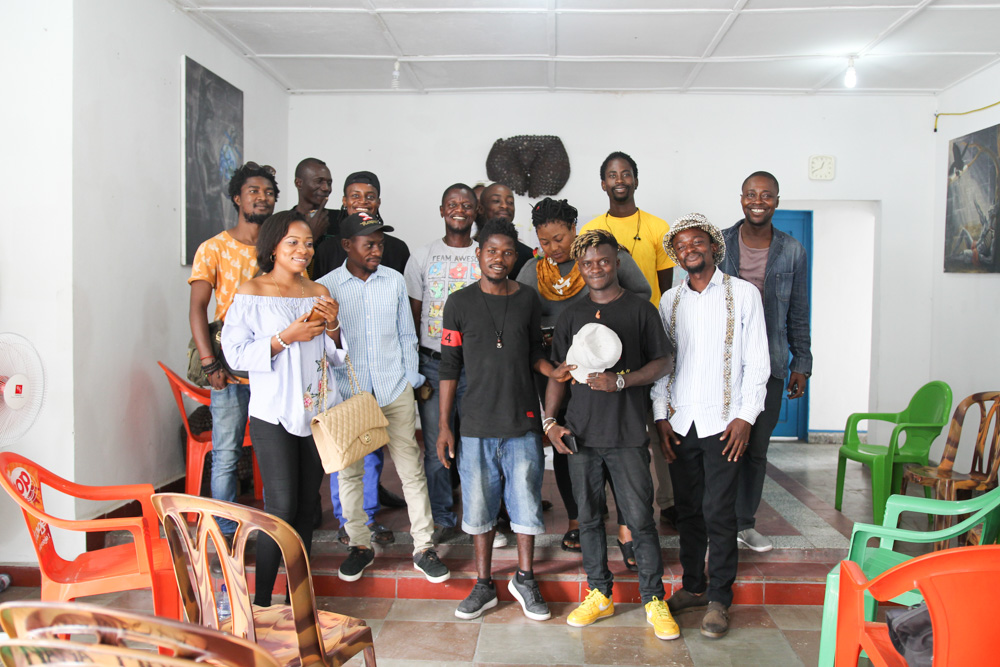
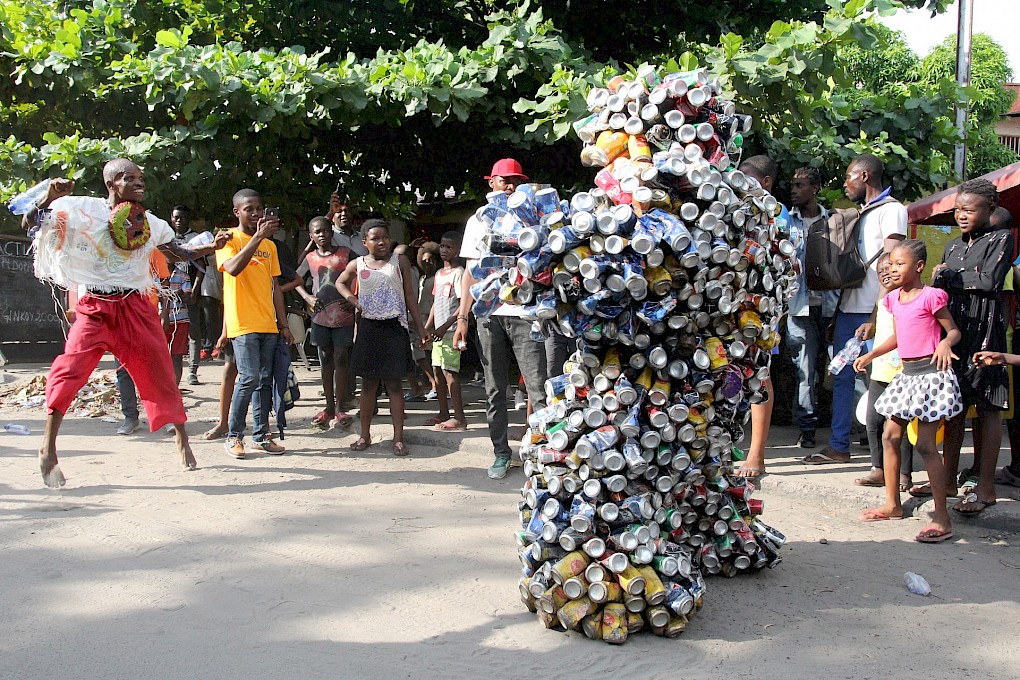
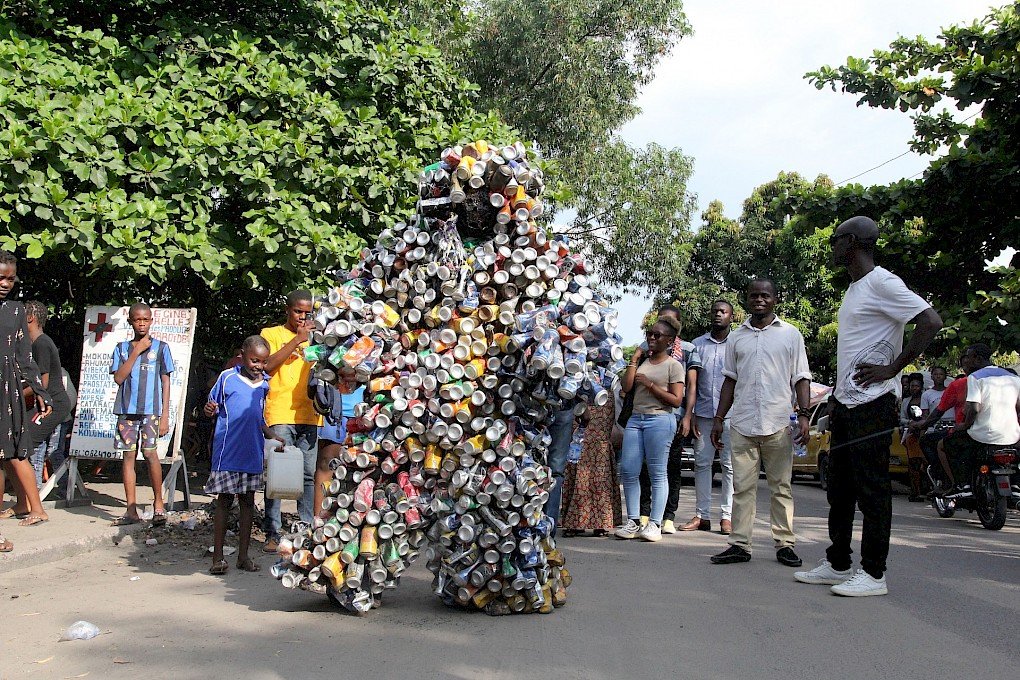
Artistic Direction Bonaventure Soh Bejeng Ndikung
Curator & concept Elsa Westreicher
Co-Curator Arlette-Louise Ndakoze
Curatorial Advice Elena Agudio
Curatorial Assistance Antonio Mendes, Jorinde Splettstößer
Research Raisa Galofre, Abhishek Nilamber, Lili Somogyi
Management Lynhan Balatbat-Helbock, Lema Sikod
Management Assistance Clara Brandt, Fanny Souade Sow
Communications Anna Jäger
Funding “Spinning Triangles” is funded by the Bauhaus heute Fund of the German Federal Cultural Foundation
C O O P E R A T O R S Académie des Beaux-Arts de Kinshasa, Banka (Groupe de Recherches sur le Design), KinArt Studio, Ndaku, Para Site (Hong Kong), Timbela Batimbela Yo, Tinyhouse University e.V.
S U P P O R T Patricia Mouboua (Académie des Beaux-Arts), Astrid Matron (Goethe-Institut)


